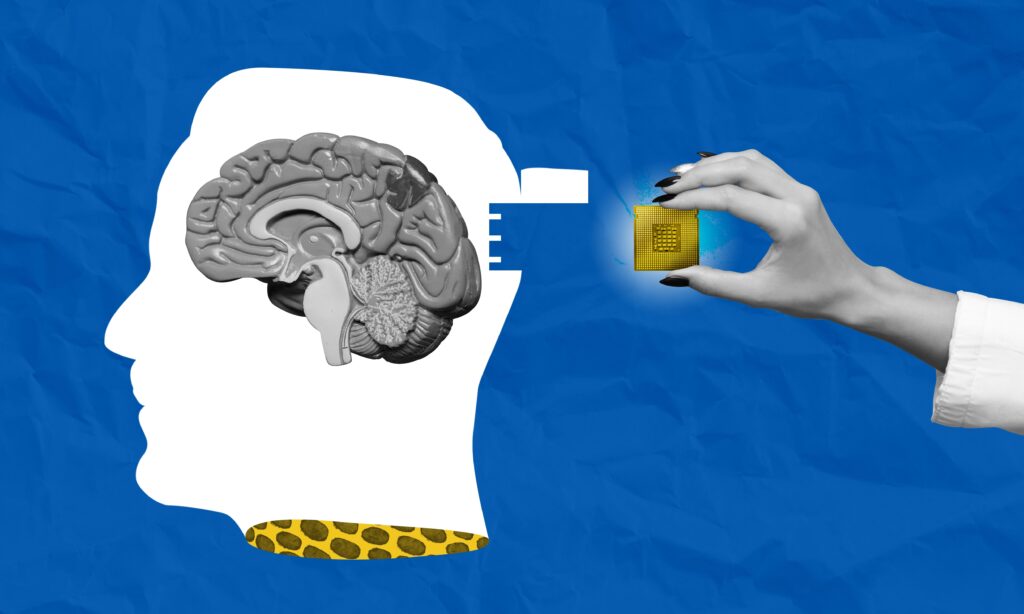In January 2024, Noland Arbaugh became the first person to receive an experimental brain chip. This chip allows him to control computers with just his thoughts. The 30-year-old man made history by becoming part of a groundbreaking procedure. The chip was created by a U.S.-based neurotechnology company. After an accident in 2016 left him paralyzed from the shoulders down, Noland volunteered for the surgery that promised to help him regain some independence.
A New Beginning After a Life-Changing Injury
In 2016, Noland’s life changed forever when a diving accident left him unable to move from the shoulders down. He lost his ability to work, study, and engage in his favorite activities. For years, Noland struggled with these limitations. “You lose control over everything. You even lose privacy. That’s the hardest part,” he said.
The chip gave him a chance to reclaim a small part of his independence. By using only his thoughts, Noland can now control a computer. This small change is a big deal for him. It allows him to interact with technology and gain back some control over his life.
How the Brain Chip Works
The brain chip is a type of brain-computer interface (BCI). This technology works by reading electrical signals produced by the brain. When Noland thinks about moving, the chip translates those signals into digital actions. It allows him to control things like a computer cursor with just his mind. This tech is not new, but it has never been used on someone with Noland’s injury before.
While other companies have tested similar devices, Noland’s case is different. It gained attention because of the well-known company behind it. Elon Musk’s company has been in the spotlight for its work in neurotechnology. However, Noland wants to keep the focus on the science, not the people behind it. “I knew the risks,” Noland explained. “But whether things worked or failed, I wanted to contribute something meaningful.”
A New Kind of Independence
Before the surgery, Noland thought he would never be able to do the things he loved again. He felt isolated and frustrated. “I wanted to study, I wanted to work, I wanted to play games again,” he said. But with the chip, he can now control a computer using only his thoughts. For him, this is a huge step toward regaining control over his life. It’s a small change, but it gives him a new sense of freedom.
The BCI allows Noland to do things he once thought impossible. It doesn’t fix everything, but it helps him take back some control. For people like Noland, this technology could change the future. It offers a glimpse into a world where people with paralysis can interact with the digital world like everyone else.
Experts Weigh In on the Risks and Rewards
The brain chip has been hailed as a major breakthrough in medical technology. Experts call it an important step in helping people with disabilities regain control over their lives. However, they caution that more research is needed. While the chip shows great promise, the long-term effects are still unclear. “It’s a big step, but we need to monitor how these devices affect patients over time,” one expert said.
Even though the company behind the device has been under scrutiny, Noland stays focused on the mission. “This is about science,” he said. “It’s not about the fame or the people behind it.”
Behind the Scenes of the Groundbreaking Surgery
After the surgery, Noland was closely monitored by a team of doctors and researchers. The company’s founder, Elon Musk, shared only a brief update about the success of the surgery. However, Noland described Musk as genuinely excited about the results. “He was just as excited as I was,” Noland recalled. For him, the project was more about helping people than about celebrity.
While the chip is still in its early stages, Noland’s success has shown the potential for this technology to improve lives. Many researchers are hopeful that it will lead to new treatments for paralysis and other conditions. However, they stress that careful monitoring is essential.
A Look Toward the Future
Noland’s journey is just beginning. The chip has already helped him regain a sense of independence, and he is optimistic about its potential. He hopes this technology can one day help other people with disabilities. “This is just the beginning,” he said. “The possibilities are endless.”
As the technology advances, it could lead to new treatments for other conditions like ALS or multiple sclerosis. Noland’s success shows that brain-computer interfaces have the potential to change lives, offering new opportunities for those with physical limitations.
The road ahead is still uncertain, but Noland is excited about what the future holds. With the chip, he has already taken a huge step toward regaining his independence. And as the technology continues to improve, many believe that others will have the same chance.


